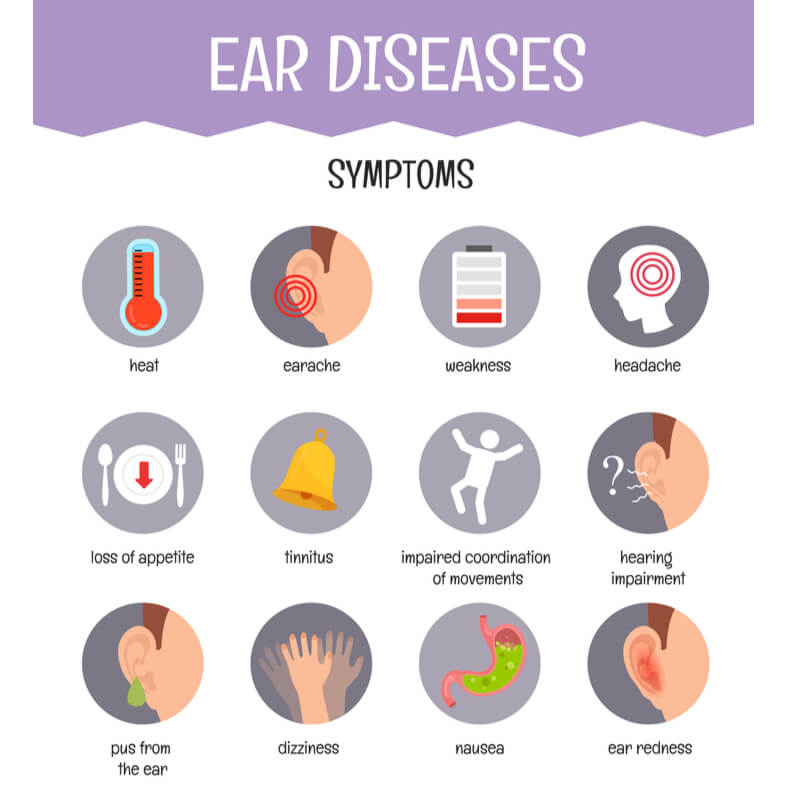Table of Contents
What is temporary tinnitus? This article will provide you with information about the signs and symptoms of this ailment. In addition to understanding what temporary tinnitus is, you will also learn about the underlying causes, including allergies and medications. Also, find out how to treat it yourself. You can also check with your doctor to see if any of your symptoms are related to tinnitus.
Treatment options

There are several treatment options for temporary tinnitus. Using a white noise machine or listening to soft music may help you mask the sounds and sleep better. Sound therapy can also be helpful, especially if you have high blood pressure and are unable to sleep due to tinnitus. In addition to hearing aids, cognitive behavioral therapy and sound therapy can help you cope with tinnitus.
A primary care physician can diagnose tinnitus by conducting a physical exam and asking you about your lifestyle, medications, and workplace exposure. They may also perform a hearing test called a tympanogram to determine the function of the eardrum. This test is generally non-invasive and does not cause any pain. If your doctor finds no physical cause for your tinnitus, your doctor may refer you to a neurologist or audiologist for further evaluation.
Although most temporary cases of tinnitus go away after two weeks, it is important to see a doctor if you notice a persistent ringing in your ears or any other signs of hearing loss. An audiologist can conduct proper hearing tests and determine if your condition is temporary or more severe. Once your doctor determines the cause, he or she can recommend an appropriate treatment.
Some causes of tinnitus include chronic exposure to loud noise, an untreated middle ear infection, or a prior injury. Other causes include mental illness or depression. Some cases can even lead to suicidal thoughts, so it's important to seek medical attention. Fortunately, there are a few treatments for temporary tinnitus. If you're unable to find the right treatment, here are some tips you can follow to manage your condition.
Another option for treating temporary tinnitus is through retraining therapy. In this therapy, the brain is trained to accept the tinnitus sounds as normal, natural, and normal. In this way, the symptoms of tinnitus will become less disruptive, and you will be able to sleep better at night. It may take several months, but it can be highly successful.
Treatment options for temporary tinnitus
Your primary care physician will likely perform a physical examination and try to determine if your tinnitus is caused by another medical problem. If not, they may refer you to an otolaryngologist, or ear, nose, and throat specialist. This doctor will evaluate the structure and function of your ears and conduct a series of tests to determine whether your tinnitus is caused by a problem with the inner ear. The doctor may also suggest that you visit an audiologist to have an evaluation performed.
If you have experienced tinnitus for more than two weeks, you should see a doctor for a more detailed diagnosis. In most cases, temporary tinnitus goes away on its own within a few weeks. If it persists for longer, you should consult an audiologist. Your doctor can carry out the proper hearing tests to determine if your tinnitus is a symptom of a more serious problem.
You can also try acupuncture, which involves inserting hair-thin metal needles into your skin. The pain associated with acupuncture is minimal and you may choose to combine it with electrical stimulation. Another treatment for tinnitus is repetitive transcranial magnetic stimulation, which involves a strong magnetic field. Although still experimental, repetitive transcranial magnetic stimulation has shown promise for some patients.
In rare cases, tinnitus may be a symptom of an underlying health problem, such as ear infection or head injury. Your healthcare provider may be able to eliminate your tinnitus by treating the underlying condition. Other treatment options include cognitive-behavioral therapy or hypnosis, which can reroute your negative thinking about tinnitus to a more positive state.
Other treatments include wearing a masking device in your ear to minimize tinnitus and to retrain your mind to accept the noise that causes your tinnitus. A cochlear implant is a form of hearing aid that is surgically implanted into your ear to transmit electrical signals to your auditory nerve. You can also use a sound generator to provide soothing sounds to your ear or mask the tinnitus sound.
Symptoms of temporary tinnitus

While most cases of temporary tinnitus go away after two weeks, there are several causes of this condition, such as cardiovascular problems, blood pressure problems, and strenuous exercise. The good news is that the symptoms of this condition will disappear once the underlying condition has been treated. Temporary tinnitus can also result from high doses of certain medications, such as antihistamines or ototoxic drugs. In rare cases, it can be caused by allergies affecting the ear.
Although transient tinnitus is relatively harmless, there is no way to determine whether it is a chronic condition until a person's tinnitus becomes persistent. This type of tinnitus typically requires five minutes of continuous ringing in the ears and occurs at least twice a week. In addition to bothering a person's sleep quality, chronic tinnitus can also affect a person's ability to focus. The problem may also mask normal sounds, making it difficult to communicate.
Temporary tinnitus may be caused by exposure to loud noise for a short period of time. Some cases of tinnitus will clear up on their own. In some cases, however, tinnitus can be permanent and cause damage to the auditory nerve. Therefore, a professional diagnosis is necessary to determine how long a tinnitus episode will last. If it persists, a professional hearing care provider will be able to determine the cause and determine the best rehabilitation protocol.
Temporary tinnitus is a common condition that is accompanied by other health issues. Symptoms include ringing in the ears, hissing, or clicking sounds. Temporary tinnitus is often caused by an underlying problem that may improve or disappear completely. If it is untreated, it can lead to other serious issues, such as depression and insomnia.
There are many treatments available to help manage the symptoms of tinnitus. In many cases, hearing aids will help you deal with the symptoms, or a sound machine will mask the sound produced by the inner ear. White noise machines are often used by people with both temporary and permanent tinnitus as a way to drown out the sounds produced by the inner ear. These devices are extremely helpful in controlling tinnitus.
Medications and allergies that can cause temporary tinnitus
Certain allergies and medications may be the cause of your tinnitus. These conditions affect your middle, inner, and outer ear. While some of these conditions can be serious, some of them are temporary. Tinnitus is usually caused by one of these causes. Your physician can rule out any underlying conditions that may be causing your tinnitus.
NSAIDs and acetaminophen are common medicines that cause tinnitus. However, over-the-counter medications may not be the cause. Taking acetaminophen or NSAIDs for a long period may cause tinnitus. Aminoglycoside antibiotics are a class of broad-spectrum antibiotics that act by restricting the production of proteins in bacteria. They are prescribed to both children and adults and are sometimes administered by injection.
Some tinnitus is temporary, occurring due to a single loud noise or an allergic reaction. Other cases are chronic and require treatment. Tinnitus caused by medications and allergies is likely to be temporary. If it persists after the onset of tinnitus, it is likely to resolve on its own without treatment. Consult an audiologist to discuss your options.
SNRIs, or selective serotonin reuptake inhibitors, can also cause tinnitus. However, if you're unable to stop taking these medications, your doctor can recommend an alternative that doesn't involve discontinuation. If you're concerned that antidepressants are the cause of your tinnitus, talk to your prescribing physician.
While the underlying cause of your tinnitus is often unclear, there are several treatments that may help manage your symptoms. Hearing aids can help you manage your tinnitus symptoms by adjusting the volume of soft sounds in your environment. Sound generators are another solution that can help you relax and block the tinnitus. While these methods aren't magic, they may make your life more comfortable.
While there are no permanent cures for tinnitus, you can stop taking medications and try a different medication. Changing your dose of a medication may help, but it's important to consult with a physician to make sure your condition is treatable. If your tinnitus is caused by a symptom of another medical condition, you can also try an off-label treatment like ear drops.




Comments
Loading…